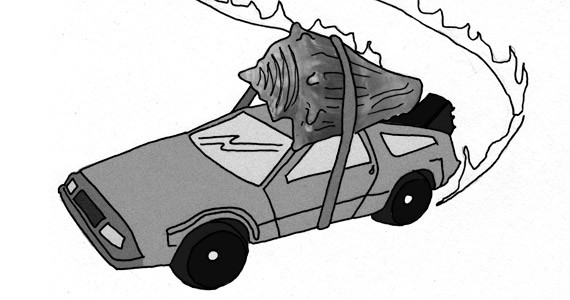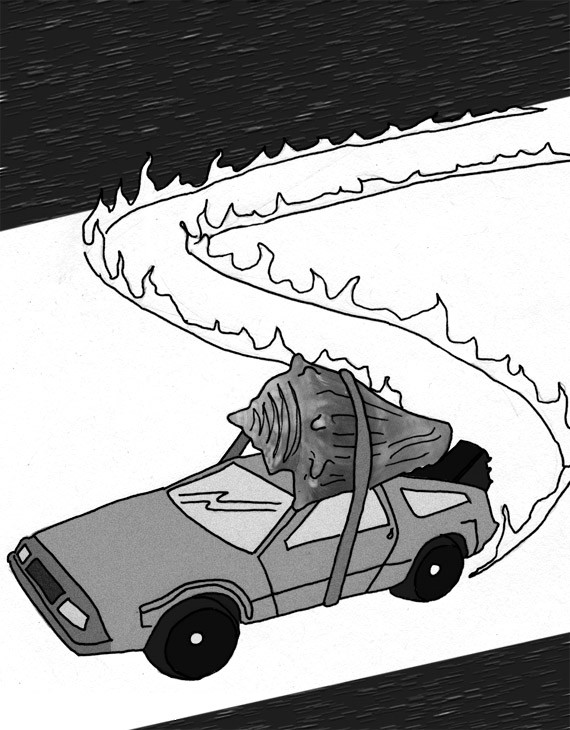Adaptation boogie
Eons ago the Mi'kmaq left a mark. Archeologist Matthew Betts says we can learn from their mistakes and successes.
Isn't it ironic, Alanis, that civilization (that uncivil thing) has brought us to the brink of itself? Our environmental impact has become seemingly untenable and gets worse every Earth Day.
Having written that, even ancient---in some ways more civil---societies had an environmental impact, and it may have put them in peril. Matthew Betts, an archeologist specializing in Atlantic Canadian digs with the Museum of Civilization, says there is much to learn from those peoples about how we can adapt to survive the environmental crises we've caused.
Betts studies 400 to 3,000-year-old Mi'kmaq shell middens (garbage dumps containing mollusc shells, bones and artifacts) in Port Joli (between Liverpool and Shelburne). There are more than 20 of them in the area, the densest concentration in the province. They run as large as 4,000 metres squared.
Port Joli's abundance of middens is unique. Coastal erosion has destroyed many; in urban areas buildings have been plunked down on them. "Joli is well-protected and has great mud flats known for clam digging," Betts says.
Because the middens and their contents--- remains of cod, great auk, caribou, rabbit and goose--- are so well-preserved, they offer a glimpse into the economy and society of the ancient Mi'kmaq, and how they survived in the Atlantic ecosystem as it was back then.
Betts's findings tell a familiar human tale. People survived for a long time by harvesting a delicious resource---shellfish--- and suddenly, 1,200 to 1,300 years ago, switched to herring and other sources. He says that either they over-harvested the shellfish, or there was a sudden spike in temperature that changed the seascape.
"Even with traditional technologies and low populations, humans sometimes caused significant impacts on ecosystems," Betts says.
A key point here is that the ancient Mi'kmaq made an adjustment before it was too late, and shellfish populations lived on. For whatever reasons---advanced technology? unfamiliarity with the landscape?---when the Europeans arrived they hunted some species, including the caribou and great auk, to extinction or extirpation.
Betts and his team also found extremely large cod bones, indicating fish that were a metre long. "Today you could only catch cod 60 centimetres long with equivalent jigging technology," Betts says, and the decreased size is an evolutionary response to overfishing in the colonial era.
It's not surprising that the ancient Mi'kmaq used more sustainable fishing methods, but the archeology shows that our understanding of environmental decline is too focused on the modern era. "Modern records of ecosystems, which extend back a century at most, are inadequate," Betts says.
"These records document animal populations when they had already been substantially altered by hundreds of years of European exploitation. In the case of the Atlantic fishery, it is clear that much, if not most, of the damage had been done prior to the mid-20th century."
A pre-industrial ecosystem, the kind archeology gives us glimpses of, was "fundamentally different than...even 100 years ago."
Port Joli, however, is a bit of an exception. Other than caribou and great auk, Betts found mostly the same species in the middens that exist in the area today, mainly because the land is so well-protect from civilization. Besides a low population density, it is surrounded by Kejimkujik National Park, Thomas Raddall Provincial Park and protected wildlife areas, thanks to tireless work by committed residents.
Protecting lands is a modern form of adaptation, a response to our increasing environmental impact that creates pockets of protection. But Betts points out that "there really is no 'natural' ecosystem in North America without humans as a significant component. Humans have been exploiting and interacting with ecosystems for at least 12,000 years in Canada."
We are part of nature and have an inevitable impact on it. The question is then, how can we return that level of impact to a sustainable level, and how can we adapt to the damage we've already done? Betts is confident in humanity's tenacious adaptive capacity, but he says fundamental change is needed.
"The archaeological record shows us time and again that at certain tipping points---either caused by climate or human behaviour, or both---the system is no longer sustainable and humans have to drastically adapt, often by fundamentally and irrevocably altering their lifestyles."
Chris Benjamin is the author of the novel Drive-by Saviours and Eco-Innovators: Sustainability in Atlantic Canada.












